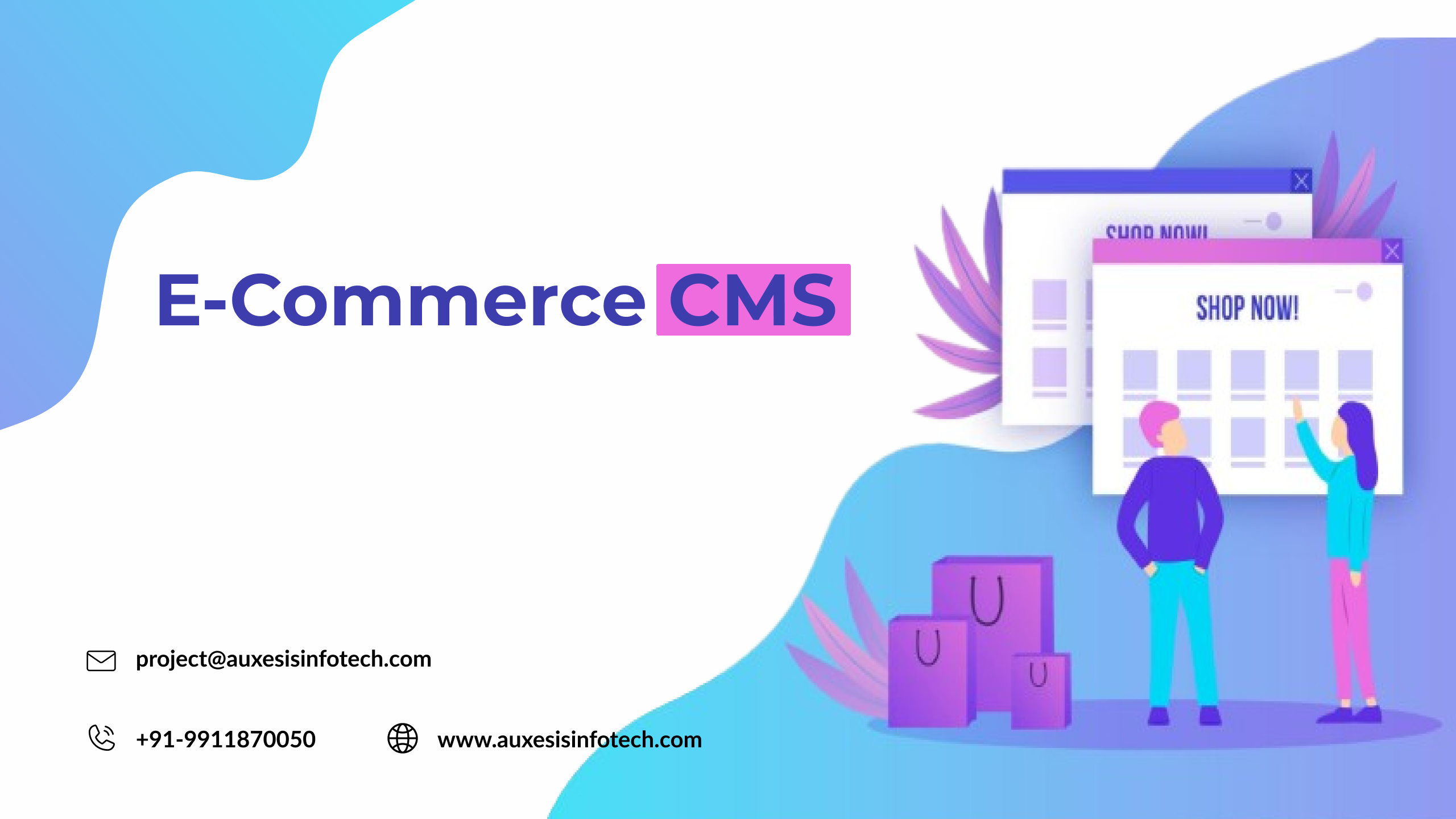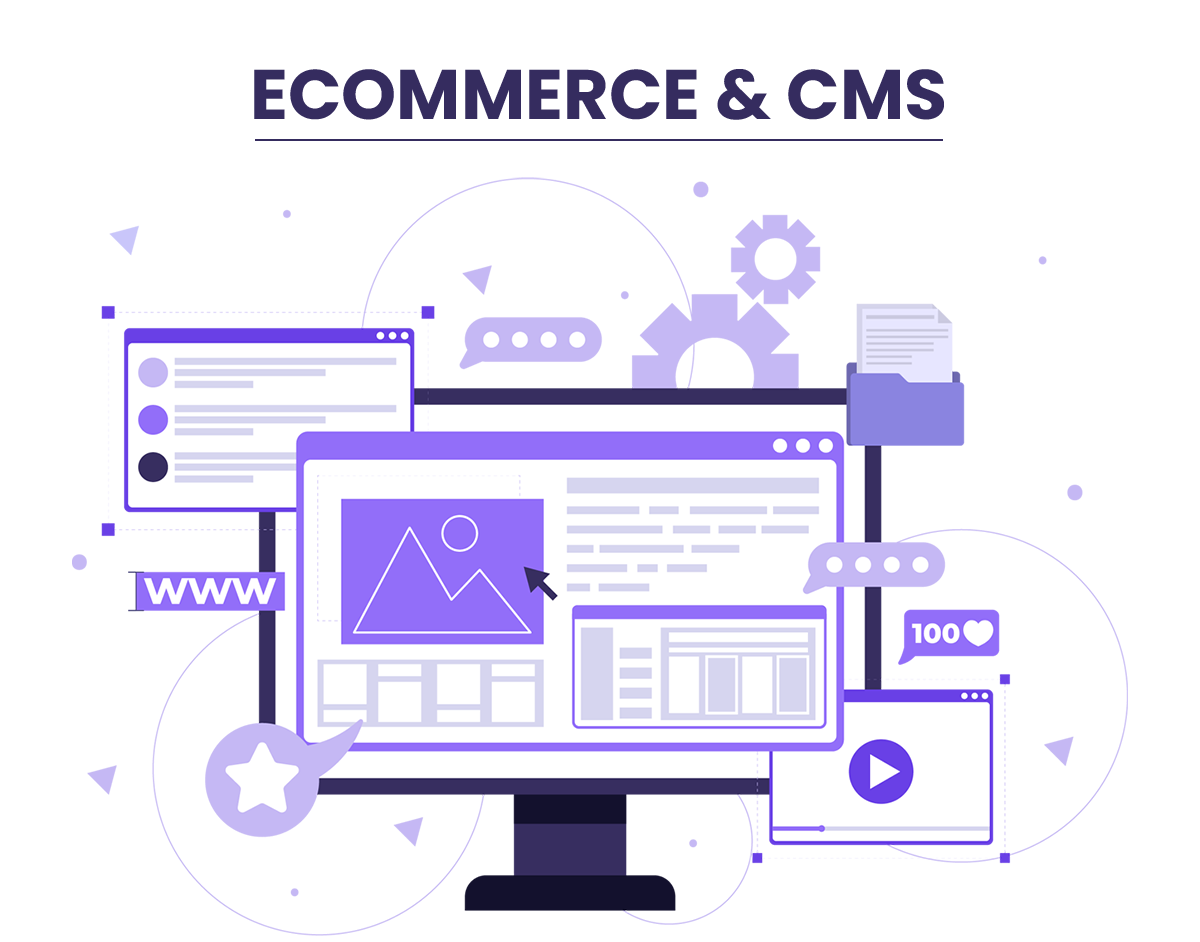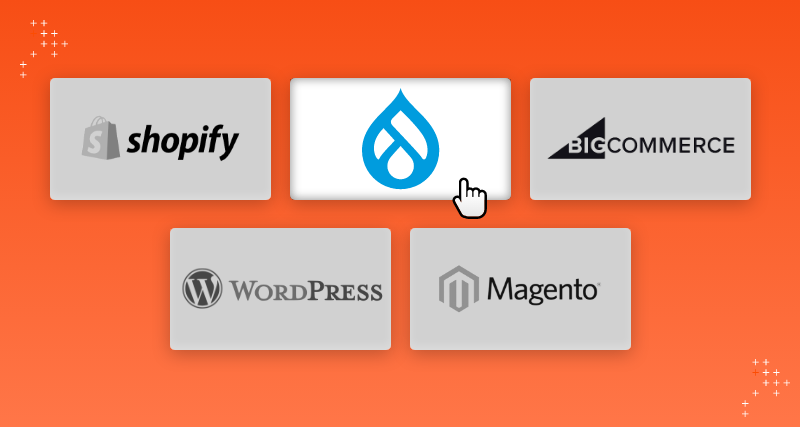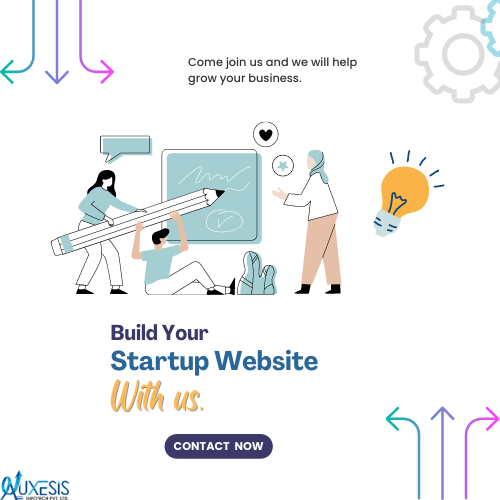
Amidst the prevalence of internet accessibility, e-commerce sales and businesses have witnessed accelerated growth. According to research conducted by Statista, e-commerce is expected to undergo tremendous advancement in the coming years. A 50% expansion reaching $7.4 trillion by 2025 has been inferred.
Consumers are gradually turning to digital mediums for purchasing groceries, clothes, electronic equipment, and more. As a result, e-commerce transactions have increased considerably. This is especially true since the pandemic period. This essentially accentuates an opportunity for various businesses to amplify their online presence.
This is where content management comes in and indicates the importance of employing a suitable CMS platform for your e-commerce website. The right CMS would play an integral part in laying a strong foundation for your online business.
Once you recognize the significance of an appropriate CMS, other questions arise as to why you may need it and which platform you should approach. Here, we will address all such concerns and establish simplified ways of advancing your online business.

Why Should You Invest in E-Commerce CMS?
A Content Management System (CMS) is essentially an application that enables users to design and manage digital content without having to acquire any additional technical knowledge. Under the ambit of e-commerce, a CMS would effectively assist business owners in creating and managing the content on their e-commerce websites at their convenience and without having to write any code.
You can modify the details of your content to develop a website tailored to suit your requirements. A powerful CMS would enable you to get a remarkable look and feel of your e-commerce store. Let us look at the various benefits attached to using e-commerce CMS—
- Simplified Creation & Modification of Content
The foremost benefit of employing a contemporary CMS is that the users are not required to have any extraordinary technical prowess. The right CMS will allow you to comprehensively manage your content while managing marketing and promotional activities simultaneously.
- Independent Content Development
Managing customer expectations is the need of the hour. Meeting consumer needs is the primary way of scaling your business and driving revenue. Now, the involvement of an intermediary can often result in a cutback with reference to agility and flexibility. This in turn can disrupt the updation of your e-commerce website.
Leveraging the right e-commerce CMS can allow business owners to clear such discrepancies by directly participating in the development process. By removing the dependency on web developers, you can run your website smoothly and even invest that money in other business activities.
- Effective Customer Connectivity
Building customer loyalty is imperative when running an e-commerce store. With the right e-commerce CMS, business owners can create personalized website content to promote customer experience. It can help in enhancing the accessibility and organization of your content.
What are Your Options in E-Commerce CMS?
There are endless choices when it comes to CMS platforms. To facilitate your decision-making process, let us first develop an understanding of the most popular CMS options available in the market—
- Drupal
Drupal is an integrated open-source CMS platform that enables businesses and organizations to efficiently create and manage their e-commerce websites. Being an incredibly agile system, Drupal provides great flexibility with hundreds of themes and modules.
Drupal is incomparable when it comes to SEO and sharp analytics for websites. This CMS platform is fully compliant with PCI standards, offering enhanced payment security. This considerably increases its preference among e-commerce giants such as Honda Brazil, Puma, Timex, and Lush. Drupal offers unrestricted access to all business owners, which makes it strong enough to address the entire e-commerce industry.
- WordPress
WordPress is an easy-to-use content management system that is popular for its affiliation with powerful plugins. This CMS comes power-packed with a WooCommerce plugin that can help magnify the efficiency of your e-commerce store.
WooCommerce retains a market share of 36.68% (July 2022) and offers a vivid assortment of free themes and extensions. Although WordPress offers exceptional ease of use, it is important to recognize that the involvement of innumerable plugins can lead to various complexities and potentially harm your website’s performance.
- Magento
Magento is an exclusive open-source CMS platform, tailored for e-commerce companies and organizations. Owned by Adobe, it helps maintain almost 200,000 websites across the internet. The most prominent feature of this CMS is its simplicity. Magento offers easy drag-and-drop functions which enable customers to experience incredible shopping without needing technical assistance.
While not as powerful as Drupal or WordPress, Magento provides the effortless organization of e-commerce stores owing to its seamless integration with CRM, ERP, and other relevant software.
- BigCommerce
BigCommerce is a widely popular CMS platform when it comes to the e-commerce industry. It is serviced by more than 60,000 businesses, irrespective of size. This CMS provides smooth and effortless management of e-commerce websites and their products. It is compatible with both start-ups as well as established companies and effectively allows the users to control their websites and scale as per requirement.
In addition to this, BigCommerce retains an integrated in-house inventory that enables you to track sales across various channels. Owing to its collaboration with payment platforms such as PayPal and Stripe, BigCommerce also offers enhanced payment security.
- Shopify
Trusted by a large number of small-sized organizations and start-up businesses, Shopify is essentially a SaaS e-commerce platform. The Shopify interface is simple and easy to use. It offers affordable rates while making sure your e-commerce store has a steady look and feel.
Shopify comprises a wide variety of themes that can add unique features to your online business website. It ought to be noted that a transaction charge is levied by Shopify on using an outside payment provider.
Why is Drupal an Ideal E-Commerce CMS?
The content management system (CMS) that you choose to employ for your e-commerce business will have a great influence on every aspect from functionality to marketing. Hence, selecting the right CMS is crucial for the success of your online store. The deliberation as to the advantages associated with Drupal is addressed below—
- Open-source Technology
Drupal is an open-source CMS platform. This essentially means that it can be accessed by all kinds of merchants, irrespective of the size or category of their business. It is packed with endless modules and themes which effectively facilitate the customization of e-commerce websites. Moreover, Drupal involves zero licensing costs, thereby allowing users and developers to conveniently make necessary changes.
Every time Drupal is updated, the unproductive sections from the previous versions are deprecated. Employing this CMS, users can pick the suited e-commerce module that can add missing functionalities on the go.
- Absolute Security
Drupal remains unparalleled when it comes to security. With an unsettling number of data breaches and security violations across the digital landscape, it is imperative that you duly consider the security aspect when choosing a content management system.
E-commerce businesses involve a great deal of financial data and confidential information and thus Drupal recognizes the need to tailor an exclusive team that works to provide prime security to your website.
- The Security Kit Module in Drupal provides several options for thickening security for your website. It plays a central role in curtailing risks and vulnerabilities.
- The Password Policy Module in Drupal allows users to create strong passwords with reference to defined password policies.
- The Two-Factor Authentication Module in Drupal represents a secondary security check whereby the user is required to input a set of codes when signing in.
-
Targeted Customization
Keeping in mind the level of competition that currently exists in the digital landscape, the enhancement of customer experience has become more important than ever. The content of any website largely depends on how it engages with the reader. This is especially true for e-commerce websites where it is incredibly important to leave an enduring impression in the minds of users. This calls for the customization and personalization of content.
As per statistics, 74% of customers lose interest if the content is not personalized. With Drupal, you can grab an enticing marketing opportunity by intensifying your customization efforts.
- The Smart Content Module in Drupal allows anonymous users to personalize their content while also enabling the site administrators to serve different content for users based on browser conditions.
- The Acquia Lift Connector Module in Drupal presents an effortless personalization experience across several platforms by incorporating the customer data and the content into one single tool.
- Excellent Networking
Being an open-source CMS platform, Drupal attracts a large number of software developers, owing to its ease of use and affordability. This has resulted in the emergence of a large Drupal community that promotes involved networking.
In fact, they even have a designated slogan they swear by—
‘Come for the software, stay for the community’
The Drupal community includes upwards of 1,00,000 qualified developers, designers, editors, coordinators, strategists, and trainers. This talented team makes sure that all support requirements are met with utmost efficiency.
Moreover, this proficient community plays a pivotal role in ensuring the security of this CMS platform.
- Enhanced SEO
All e-commerce websites involve massive amounts of data which is why it becomes imperative for every brand to focus on generating traffic on their online platforms. This is accomplished by implementing Search-Engine Optimization (SEO) on all their web pages while indexing every product.
Drupal has dedicated various modules for the enhancement of SEO with respect to e-commerce businesses—
- The Pathauto Module in Drupal makes sure that the website URL of your online business is search engine friendly by revamping complex URLs into simpler ones.
- The Meta Tag Module in Drupal is a multilingual SEO module that keeps track of all metatags used across various web pages.
- The XML Sitemap Module in Drupal ensures the flexibility of including or excluding certain pages on the sitemap.
- The SEO Checklist Module in Drupal plays an essential role in making sure that your e-commerce business is sufficiently compatible with SEO practices.
The e-commerce industry is experiencing continuous growth and development which has made the brands recognize the need for constant reviews of their businesses. This is where Drupal can showcase its incomparable functionalities and prove to be a godsend for e-commerce businesses.
Recent Blogs
Our Clients








_0.png)





















Clutch & GoodFirms Reviews
Our success is demonstrated by having the most reviews compared to competitors.
Auxesis Infotech provides web development support on our Drupal platform. They are always flexible enough to help us achieve our goals. Very pleased with Auxesis competance, flexibility, communications and execution.
5

Richard Halderthy
Director Brand & Communications, Saint Gobain Ltd
30 Reviews
Powered by Clutch ![]()
I'm impressed by their communication and speed of action. Ever since we launched the redevelopment, there’ve been many compliments on the improved look, functionality, and ease of navigation.
5

Ryan Titley
Director of Projects, ERRIN
30 Reviews
Powered by Clutch ![]()
Get in touch with us!
Please fill in the form below, and one of us will get you or respond to your queries soon.






